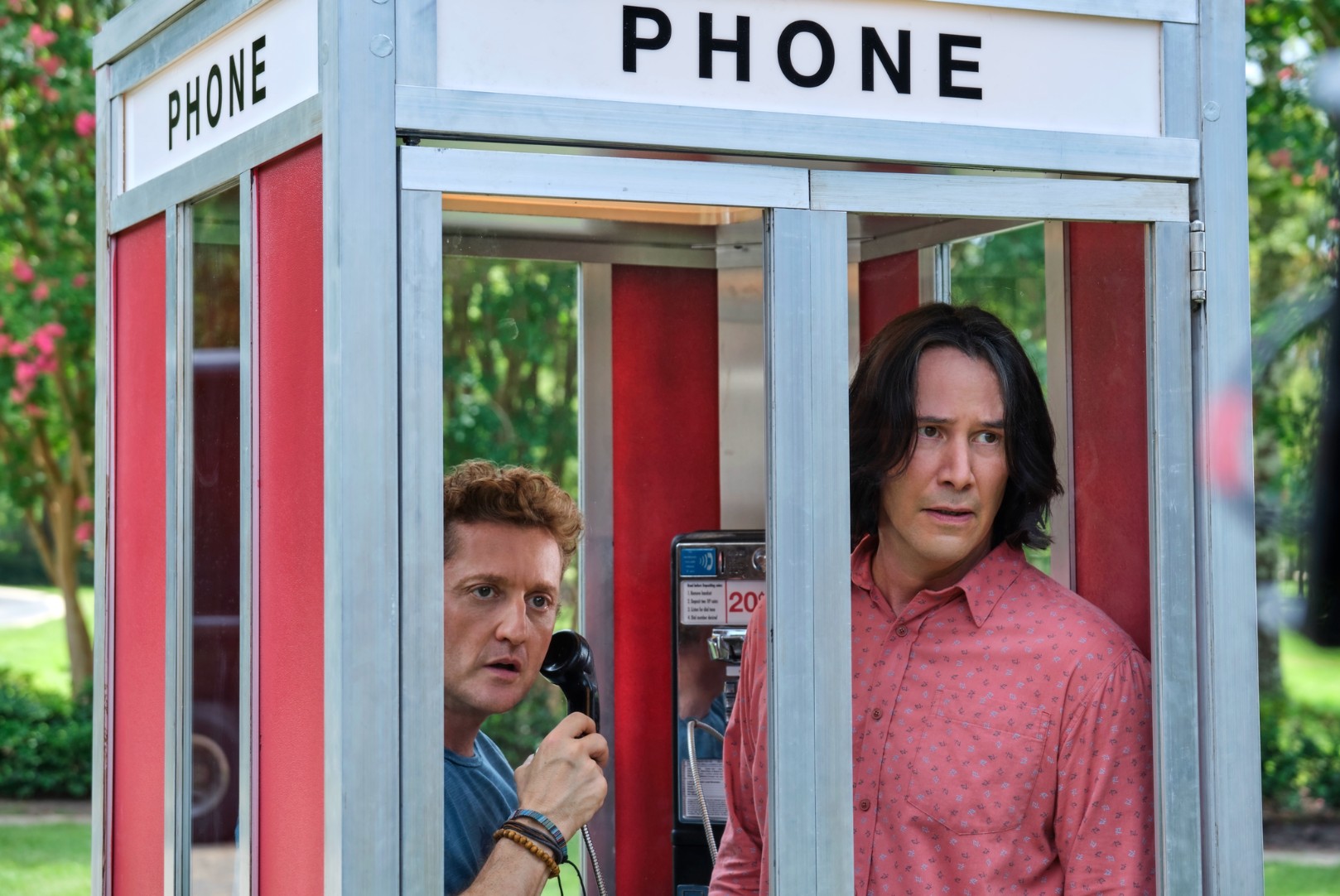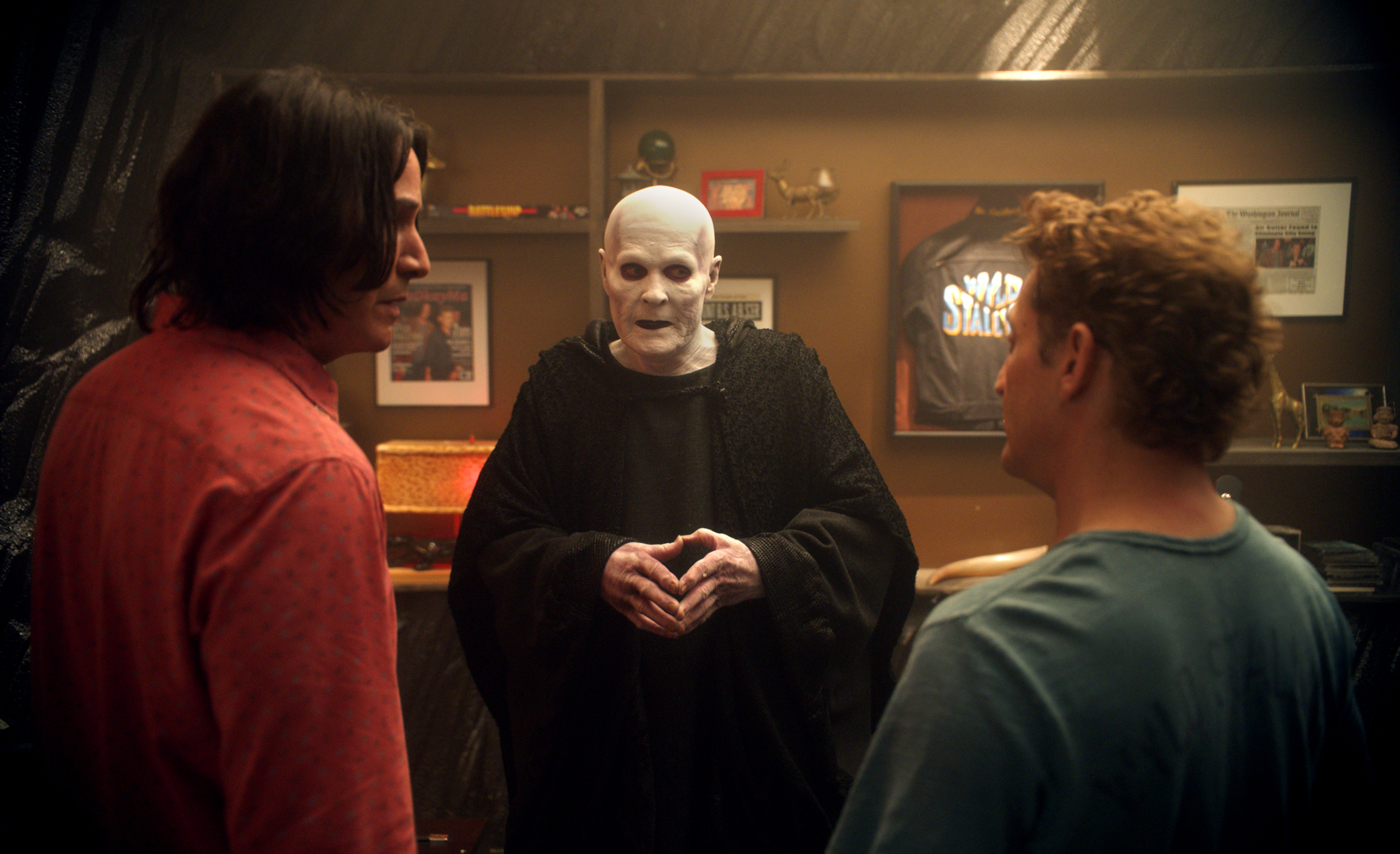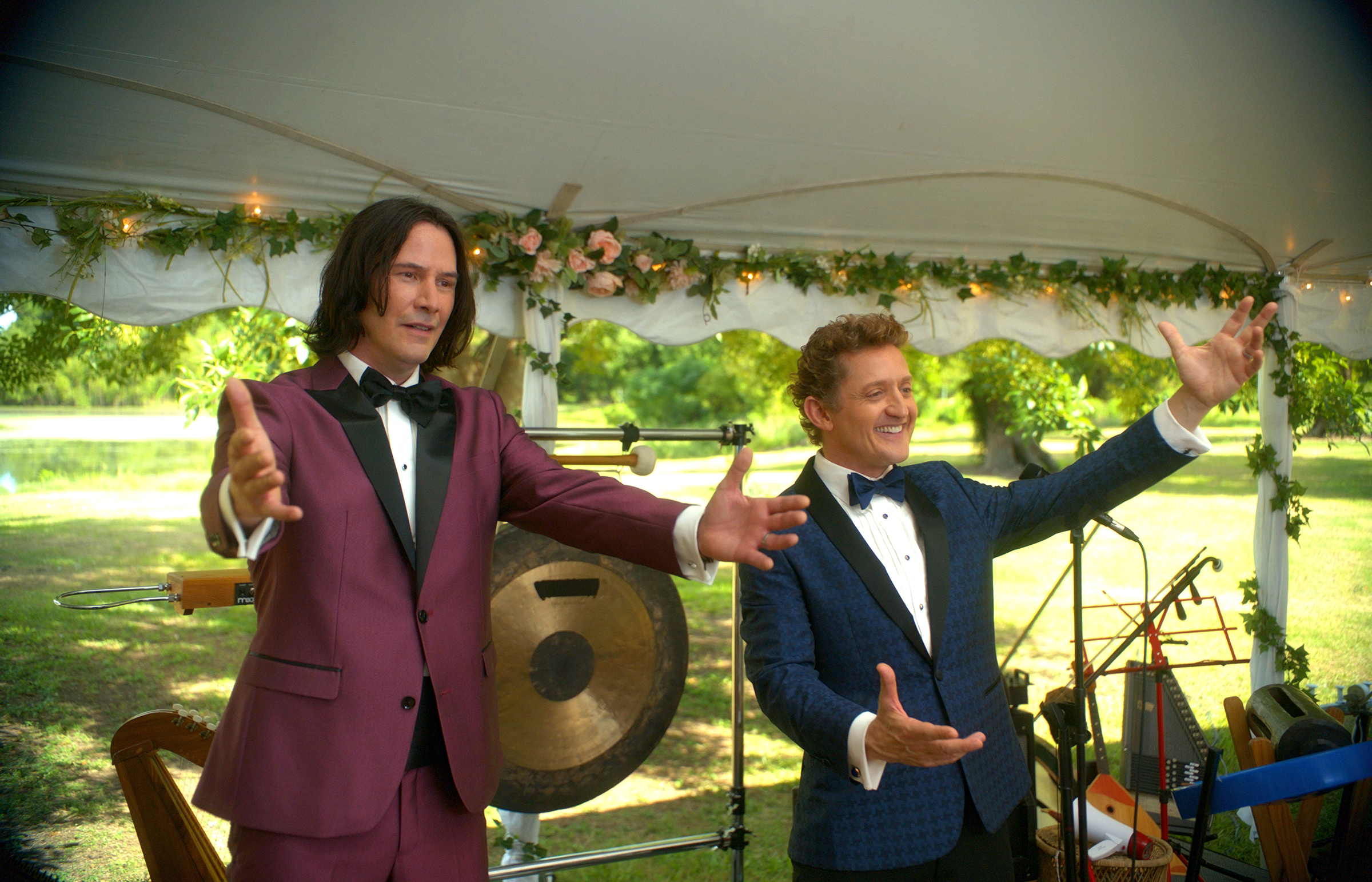For anyone following the decade-long saga of Bill & Ted Face the Music, it’s understandable if the film’s impending release this week — both in theaters and via on-demand video — feels a little surreal. Franchise co-stars Keanu Reeves and Alex Winter have been talking about a third installment of the comedy franchise for years, after all, and the on-again, off-again project spent much of that time mired in development limbo.
And yet, here we are, mere days away from being able to finally see Bill & Ted Face the Music.
The film finds Winter and Reeves’s titular slacker heroes stuck in middle-age doldrums, desperately trying to embrace their destiny as the musicians who save the universe with a song. Oscar-winning filmmaker Dean Parisot (Galaxy Quest), who’s been attached to the project nearly all of the 10 years it’s been in development, directs from a script penned by franchise screenwriters Chris Matheson and Ed Solomon.
Parisot talked to Digital Trends about bringing Bill S. Preston and Ted “Theodore” Logan back to the screen almost 30 years after their last adventure (1991’s Bill & Ted’s Bogus Journey), and why Bill & Ted Face the Music might be exactly the sort of film the world needs right now.

Digital Trends: A project like Bill & Ted Face the Music, with all of that nostalgic baggage and its unique tone, comes with a lot of unique challenges. What appealed to you about making this movie and taking on those challenges?
Dean Parisot: What appealed to me are those characters — those ludicrous, optimistic best friends, and the way they talk and the absurdity of the original movies. And because it was 29 years ago when the last movie was released, I thought that allowed us to attempt to contemporize it a bit. We were attempting to hold onto those characters, but also to look at their experiences as a continuing story, and to look at them in their middle-age years, which would be different than them as teenagers, right? Film language and sense of humor is different now, and so it appealed to us to try and adapt Bill and Ted a little bit, while holding on to what makes them unique and the spirit of those two nuts.
When you’re working on a movie for that long, a lot is bound to change over time. What were some of the ways Bill & Ted Face the Music evolved since you joined the film?
I was on it for seven years, so it’s not easy to remember everything. The opening changed, and the film changed structurally, but most of the key scenes stayed in it. We rewrote Death’s part a little bit during production, too. It kept changing and it evolved, but its core was always the same, so I can’t say it changed drastically. It’s just kept evolving. The scenes kept getting better, more concise. We were adapting to our situation, which was fairly low-budget and independent. But I think we got the best movie we could make, given the time and energy and money and people involved.

We’ve spent 10 years hearing about all of the difficulties in getting this movie made, but what were some of the most enjoyable parts for you? Was there an aspect of making the movie you’re particularly fond of?
What I’m most fond of is this group of people who made the movie. We made it together, and to be consistently collaborative and also be friends and respect each other and move forward in a way in which we’re all enjoying ourselves, that doesn’t happen that often. In a way, the experience of making of the movie is thematically what the movie is about, too — which is just to stick with it and keep going.
And we had a bunch of brilliant filmmakers together on this, too. Keanu has made movies and produced them, and Alex is a brilliant director who’s produced, directed, and written films. Ed and Chris have both made movies, and it’s got [producer] Scott Kroopf, who’s been in the business for years. So we all made the movie together, and it was actually fun.
It’s such a weird year for movie releases. As a director, how does this changing environment make you feel? I don’t want to call it the new normal, but it definitely feels like things are changing in the way audiences watch movies.
Well, we started out making a theatrical movie, and it’s, well … not that. It’s always hard to get a theatrical release for what’s considered a “domestic comedy” anyways, and now the business is changing — but I don’t think that changes the way you make a movie. Movies have a three-act structure, and a theatrical movie has the same structure as a movie that comes out for streaming. So I don’t think you’re actually changing anything. Everybody has big screens in their homes now and great sound systems, so I don’t think that part is any different. I think we’re just changing the delivery system.

How did you feel when the decision was made to release Bill & Ted Face the Music as a same-day theatrical and on-demand film? Do you feel like anything is lost in not getting that big theatrical premiere?
Well, the movie business — specifically the theatrical movie business — is changing drastically right now. There are lots of theories about where it’s going, but I think the loss for me is in the shared experience, especially with a comedy. When you’re with a group of people in a theater, you have a different experience. Even if they’re not laughing, you feel that audience around you, but when they are laughing, you have this really enjoyable experience with a group of people in a dark room that’s really memorable. I will absolutely bemoan losing that if it happens, but I don’t think it will.
Diverging from Bill & Ted for a moment, you directed a different fan-favorite 1990s comedy, Galaxy Quest. Over the last 20 years, there’s been a lot of buzz about it being turned into a TV show, and a documentary about the film was released last year. Why do you think Galaxy Quest is still on people’s minds and still being talked about so much two decades later?
You know what? You’re going to have to tell me the answer to that. I think I’m just too close to it. I loved that movie. I made the movie that was in my head, which is often difficult, because there are a lot of things that get in the way of making a movie like that. It really was the closest I’ve ever gotten to what I imagined would be on the screen.
To me, Galaxy Quest celebrates our ability to suspend disbelief and fandom. It celebrates what I love about movies. And in a strange way, Bill & Ted Face the Music celebrates a similar kind of idea, in that it celebrates us making things together as a culture, and as human beings. It celebrates our potential to solve problems together, and that we can create societies that coexist together. All of that can sound incredibly corny, sure, but maybe not so much right now — not when you start losing those things.
Directed by Dean Parisot, Bill & Ted Face The Music will be available in theaters and via on-demand video August 28. And remember: Be excellent to each other.



